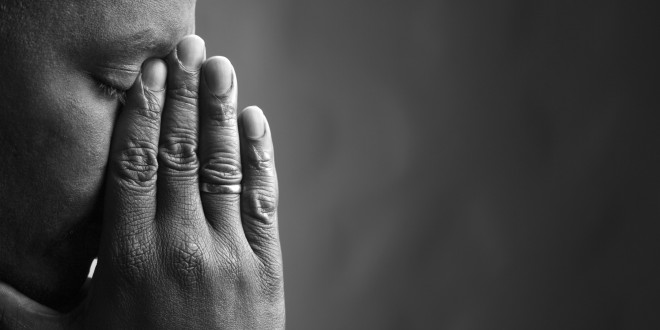
There is no greater loss than the loss of a loved one, and if you’ve lost someone yourself, you know this to be true. When a loved one dies, the pain can be unbearable, and you grieve for your loss will determine how quickly you heal. The grief process is a natural one, a necessary one. It is, in fact, evidence of your love.
In 1969, Elisabeth Kubler Ross wrote a seminal book called On Death and Dying. In this seminal publication she outlined the 5 stages of grief: denial, anger, bargaining, depression and acceptance. These stages occur naturally in our lives every day around the many changes we go through such as job loss, displacement, trauma, and more. Going through these stages mindfully will help you heal. Let’s take a look at each of them here.
Denial
The first stage of grief is denial and while denial is often thought of negatively, when it comes to surviving loss, it is completely necessary. When you first lose someone the world becomes overwhelming and meaningless. At this point in dealing with death, life itself makes no sense.
This is the state of denial where you’re in shock or you’re numb and you feel nothing. You might find yourself saying, “This isn’t happening. This can’t be happening.” You might try to go about your days as if nothing has changed.
This might sound terrifying, and for people who don’t understand this stage of grief it can be confusing, but denial is your friend. It can help you pace your grief. Denial is a natural way to handle the pain of loss in small doses. As you move further on in your grief, your denial will fade but you’ll be stronger to be able to deal with the flood of emotions that begin to surface.
Anger
Like denial, anger is an emotion that has a bad reputation. As you emerge from the state of denial the reality and the pain of your loss will be felt and you might not be ready for it. When intense emotions surface and we feel vulnerable, it’s only natural to express these feelings as anger.
The anger may be aimed at complete strangers, friends and family, or the world in general. It may be directed at our dying or deceased loved one. Of course deep down we know that no one or thing can be blamed for our loss. Emotionally, however, we’re not so pragmatic.
Anger is a necessary stage of the healing process and you must be willing to feel your anger, even it seems wrong or limitless. Underneath anger is your pain.
You might feel deserted and abandoned, but you can actually find strength in anger. It can be an anchor, giving you temporary structure while you feel the emptiness of loss. When we loss someone we are lost at sea – embrace your anger as a life-raft and over time it will dissipate and you’ll suddenly find yourself ashore.
Bargaining
If you’re in the process of losing someone to an illness or an accident, bargaining comes in to play. You will do anything to spare your loved one, and even if you’re not religious, you might find yourself praying to God, pleading that you will change your ways, if they live. After a loss we can lose ourselves to statements like “If only I had…” and “What if…” statements.
At this point in your grieving, you want your old life back. You want your person there with you, and your life returned to what it once was. You also want to travel back in time to perhaps recognise the illness sooner, or to stop the accident from happening. Guilt is bargaining’s best friend: if only, if only! We may even bargain with the pain – you’d do anything to stop feeling this pain of losing someone.
It’s normal to try to negotiate your way out of the hurt. It simply hurts too much, but bargaining can lead you back to anger and even denial. There’s no roadmap for these stages and you can bounce back and forth between them for days, months and years. You’ll soon find that you can’t stop feeling the pain, you can’t be angry forever, and you can’t talk your way out of this situation. Which leads, naturally, to depression.
Depression
After bargaining, anger, and denial you will become aware of the reality of your present situation. This is where grief enters your life on a deeper level: depression. Depression during a loss is not a sign of mental illness but rather it is the appropriate response to the pain of losing someone you love.
It’s normal to want to withdraw from life once someone close to you has died, don’t let anyone tell you otherwise. Often people might think this depression is something you can snap out of. We beg to differ: losing someone is depressing, so depression is a normal response. You’ve lost a loved one but you’ve also lost your old life. Take the time to feel the sadness, because denying it will only prolong the pain.
Acceptance
Acceptance of the loss of a loved one does not mean that you are fine with what has happened. You might never feel OK about this loss, but accepting it is about understanding that your loved one is physically gone and your new reality is the new normal.
You don’t have to like this new life, but you do have to learn to live with it. Life goes on, and your loved ones want it to go on with you. Resistance to acceptance is another normal part of the process of grieving. You will want your life to stay the same as it was before, but you’ll soon find that you will not be able to keep the past intact.
When a loved one dies, everything changes. You must readjust. Finding acceptance might come in the form of having more good days than bad. Anger and depression might still linger on, but now you can start making new connections, and carrying on. The acceptance stage is also a time of accepting how you feel about your loss. Now is the time for you to listen to your needs. You grow, change, and evolve in this stage. It’s not about letting go, but rather letting yourself live again.
Grief is Both Universal and Individual
The stages of grief and mourning are universal because they are experienced by people from all countries, walks of life, and cultures, but how we grieve is individual and personal, too. In bereavement, we will each spend different amounts of time working through the 5 stages. Each stage comes with different levels of intensity, depending on who you are and what you’ve experienced, how you deal with trauma, and your support networks.
The 5 stages of grief cannot be road mapped. You might start with depression or anger. You might not get to acceptance for some time. Just know that the stages exist in order to help you understand grief and loss. While grief is as individual as our lives, the stages are tools to help you frame your loss and identify your feelings during it.
Denial, anger, bargaining, depression and acceptance serve as a framework to help you live with the loss of your loved one. You will not go through them in the prescribed order, but as you progress through each stage, no matter where you start and where you end, you will begin to see a common thread emerge: hope.
And with hope, you’ll learn to live again, better equipped to cope with the loss that inevitably comes with living and loving.









Astrology Pandit - 8 years ago
The point described in this post is quite impressive. I must say the author of this post have great potential to explain. Great! Keep it up.